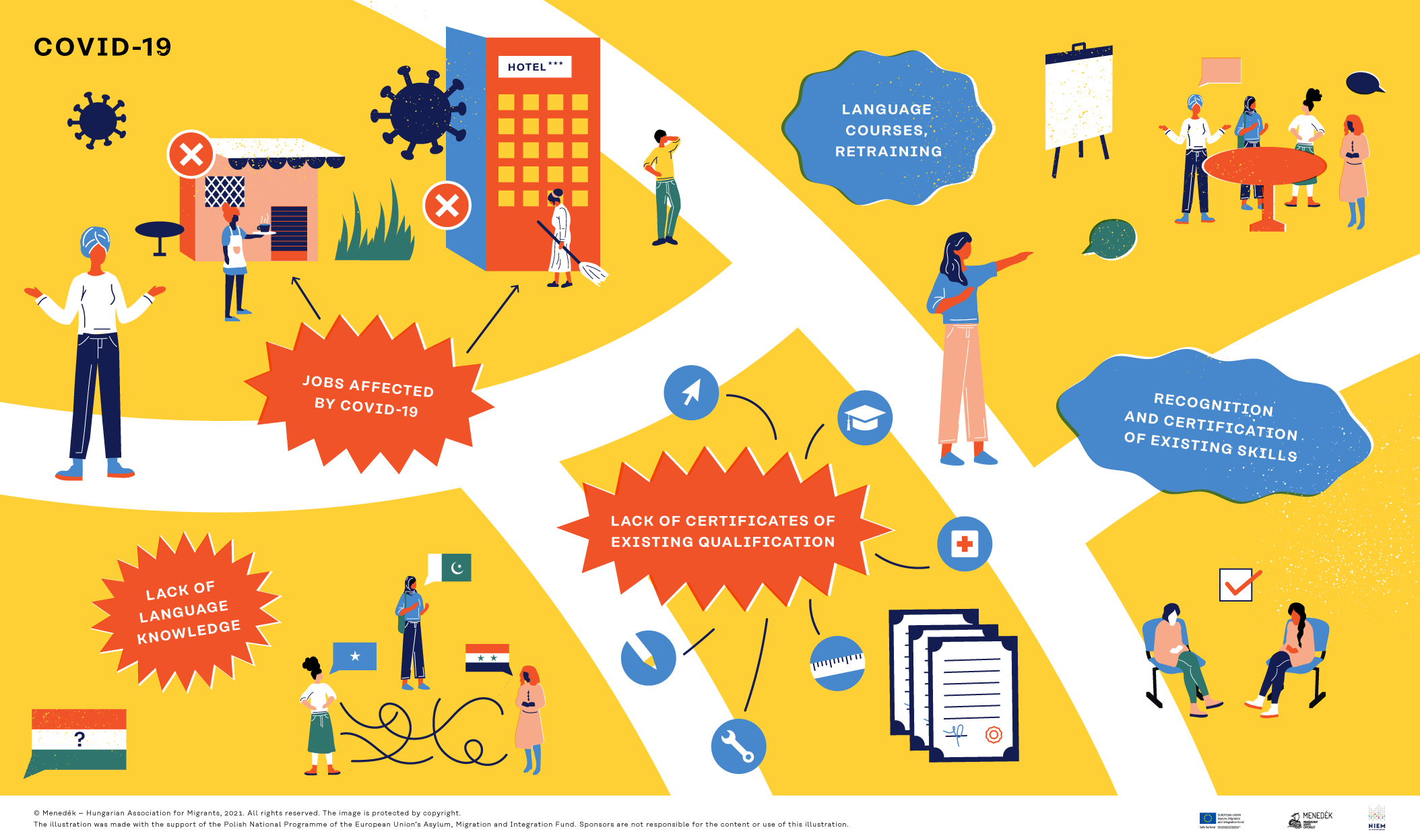
Until the beginning of 2020, most beneficiaries of international protection could find employment due to labor shortages, but they were particularly hard hit by the economic recession caused by the COVID-19 epidemic, as many people worked in jobs that were hit hardly by the lockdown, e.g. catering or tourism.
The problem when looking for a new job is the lack of knowledge of the Hungarian language. Previously, until the closure of transit zones, a period suitable for learning would have been, for example, a period spent in the transit zone, many times several years in total. However, since the summer of 2020, the maximum of 30 days that can be spent in a reception center is not enough for refugees and protected persons to acquire any language skills or profession.
It is also a problem that potential employers are unaware of the legal conditions of employment of beneficiaries of international protection, so they are sometimes frightened by perceived administrative obligations, reluctant to employ refugees.
Another problem is that they cannot prove their education with any documents because those were left in the country of origin, were lost or damaged while fleeing. Under the Asylum Act, they cannot contact the authorities of their country of origin to request a new document.
Three areas have emerged that could contribute in general to the more successful integration of beneficiaries of international protection into the labor market:
targeted, state-supported Hungarian language courses,
providing the opportunity to participate in some form of training or retraining,
the possibility of recognizing skills and competences (not only formal, documented qualifications should be recognized, but their existing skills should be recognized or qualified under an accelerated procedure).
Particularly in the context of the COVID-19 epidemic and the economic recession, it would be useful for aid organizations to constantly and actively seek out contacts with potential new employers who may be open to the employment of beneficiaries of international protection.
The problem, however, is that those who have to make a living primarily are very difficult to keep inside any training, even if it is free. Therefore, housing and subsistence benefits are also needed.
